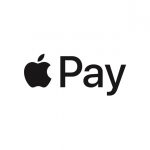The first big wave of Apple Pay contracts are expiring this month, and a big question for both Apple Inc. and the financial institutions that committed to support the computing giant’s mobile-payments app is whether to renew, and under what terms, in the face of less-than-spectacular results for mobile payments generally.
Apple Pay officially debuted in October 2014 to considerable fanfare, and in the ensuing years more than 1,500 U.S. banks and credit unions have signed on to allow their customers to load their cards in the Apple wallet. But a standard contract provision stipulated a three-year term, leaving those early recruits with a big decision.

According to the original Apple Pay contracts, banks and credit unions must pay Apple 15 basis points on each credit card transaction and half a penny on each debit card payment. This is despite the fact that financial institutions have historically been loath to share card interchange with any outside entity, let alone a Silicon Valley interloper.
At the same time, the contract allows Apple to exert considerably more control over the program, and over banks’ participation in it, than financial institutions have typically been willing to tolerate. Terms require painstaking accounting by issuers, with penalties for under-reporting, for example.
But bankers say the service appeals to some of their best customers, who they fear may stray to competitors if they stop offering it.
“We haven’t had much volume, but we’re not looking to get rid of it,” says John Schulte, chief information officer at Mercantile Bank of Michigan, a Grand Rapids, Mich.-based institution known for its technology orientation. Mercantile was an early sign up for Apple Pay. “You have high-end customers who want it. Why take the risk of losing them over 15 points of interchange?” Schulte asks.
But that doesn’t mean Schulte is all set to sign up for the same deal. “I’d love to renegotiate that,” he says, but adds that smaller banks like his are at a disadvantage unless they can bargain through their core processors. And with low volume, the fee expense has been “negligible” so far, he says.
Mercantile likely won’t be alone if it ends up renewing with Apple Pay on the same terms. Even larger institutions fear losing mobile-oriented customers who also happen to generate the most in fees, experts say.
“Nobody is in a position of strength to renegotiate a new deal for Apple Pay because they can’t afford to abandon this payment type for fear of losing good customers,” says Richard Crone, principal at Crone Consulting LLC, San Carlos, Calif., in an email message. “Apple Pay is here to stay, with a long runway of support by banks and credit unions, regardless of your opinion about the adoption numbers.”
Crone estimates there are more than 50 million active Apple Pay users in the United States, with “active” defined as two or more transactions per month. That’s between 6% and 8% of all iPhones and Apple Watches equipped for near-field communication. But most of these users are customers of the five biggest banks, with the remaining institutions claiming fewer than 5 million, Crone says.
That underscores an imbalance that bankers like Schulte are all too familiar with. Big banks have the negotiating leverage, he says, with smaller banks left to capitalize later on any openings the big banks may create in Cupertino. “Apple will pick up their call. They won’t pick up mine,” Schulte says.






